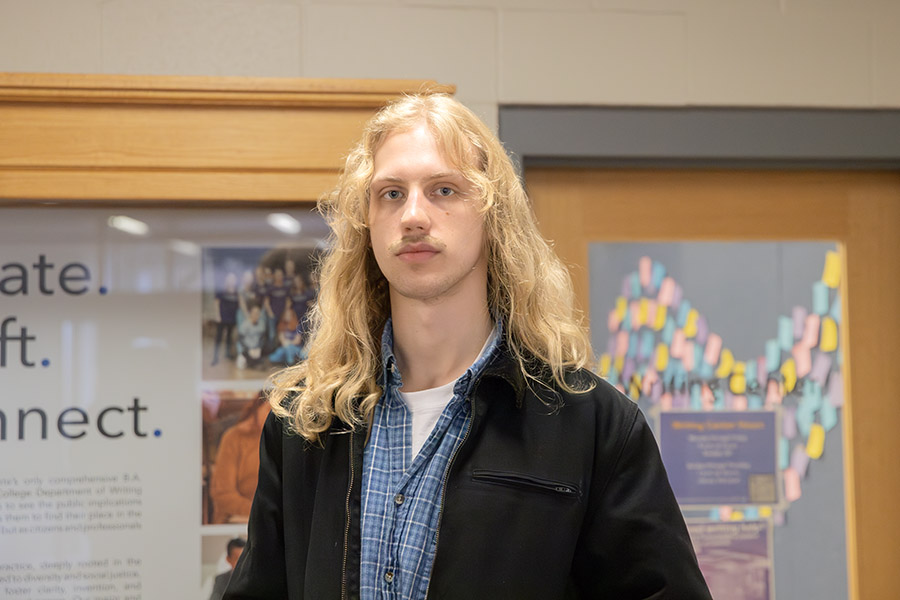Two apparently unrelated items spark this commentary. First was the headline in The Ithacan, March 28, 2024 editorial: “The College Must Support Student-Driven Advocacy.” Second was my finishing Doris Kearns Goodwin’s biography of Franklin Delano Roosevelt—in which she spends considerable space explaining FDR’s decision-making: how he brought the fiercely isolationist American public along to support America’s role in World War Two. In a nutshell, FDR, though he had strong beliefs, consulted extensively with all constituencies—especially those with whom he disagreed—before making up his own mind and declaring action. The March 28 editorial on the other hand is absolute in its opinion: “It is imperative that the college follows up with ICFSP about their demands….” This following ICSFP’s “Die-IN” to which the newspaper devotes an entire page 3.
At the risk of being too wonky I pondered that word “must.” Must is OK if your parent tells you to clean your room or your significant other says “we must talk about this”; but lack of clarity or reasons with a subject so contested as the Gaza war: please explain—unless the “demands” are so compelling that reasons are superfluous. (Here’s my editorial: ICSFPs demands misuse the accusation “Genocide” — as has become common to those against Israel; the request for an apology because the college did not realize earlier its errors is simply audacious, sophomoric really, as are its other “demands”).
To be clear I do not expect ICSFP to explain or give reasons: to get attention and to try to be relevant it needs to continually ramp up its rhetoric. As its demands reflect. But the burden is on the editorial to explain why the college “must” accede to ICSFP’s advocacy. Does it mean any student group advocacy? Or only the familiar and popular cause de jour? I suspect the latter. In either case—make the case. As FDR figured out, simple declaration even if you have the authority is less compelling in the long run than good reasons.
(A detour to the use of “genocide”: intent is a necessary component. Not only large numbers but “the deliberate killing of….” ). Thus, the Atlantic magazine (almost always liberal-leaning) in its Oct. 10,2023 issue headlines: “Hamas’s Genocidal Intentions Were Never a Secret”—using “genocide” correctly. Because Hamas’s charter is clear: those f……ers just want to kill Jews—not only Israeli’s: Jews. Their intent is clearly genocidal.If the Ithacan wants to do something unpopular and courageous it can spend the same entire page that it did on ICSFP’s story presenting the Hamas charter. Then it can headline ”Understanding why Israel Thinks It Must Eliminate Hamas before Hamas Eliminates Israel”
Even more important, my guest commentary is about higher education’s purpose: Coddle or Challenge? It is so easy to slide into Coddling—as does the March 28 editorial. It purports, I suppose, to represent some voice of the students, yet ICSFP’s third demand denies another segment of students –those who may wish to visit Israel under the auspices of Birthright, their voice. Targeting IC’s Hillel not only smacks of anti-Semitism, but ignores the fact that Hillel sponsored a public dialogue in Muller Chapel on February 7, 2024 to facilitate exposure to differing points of view on the war, its historical roots, etc.
And it is this avoidance of uncomfortable dialogue—so appropriate to an academic community—that the editorial avoids. (Ironically, the same issue includes a piece titled “Diversity improves the music curriculum,” with the now familiar accusations of white supremacy and misogyny. Worship at the altar of Diversity but only if it passes the Progressive litmus test.)
My own argument here is similar but also less popular: exposure to diversity of thought and opinion yields better conclusions and sharper thinking. That’s what college should be about. That’s what FDR practiced. And the responsibility of faculty and administration. Not to Coddle but to Challenge.
P.S. Please don’t conflate my disagreement with disrespect: I take the editorial seriously and respond in kind.
Howard Erlich is associate professor emeritus and a former dean of the School of Humanities and Sciences.










